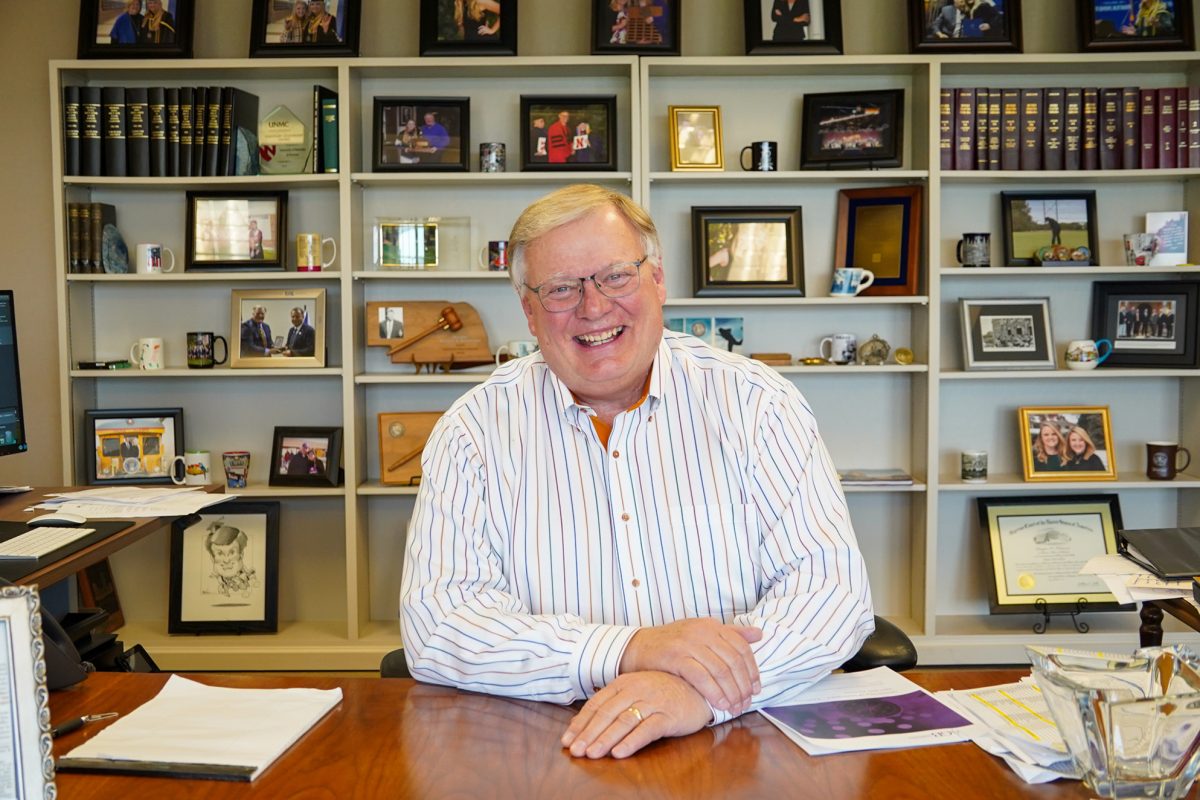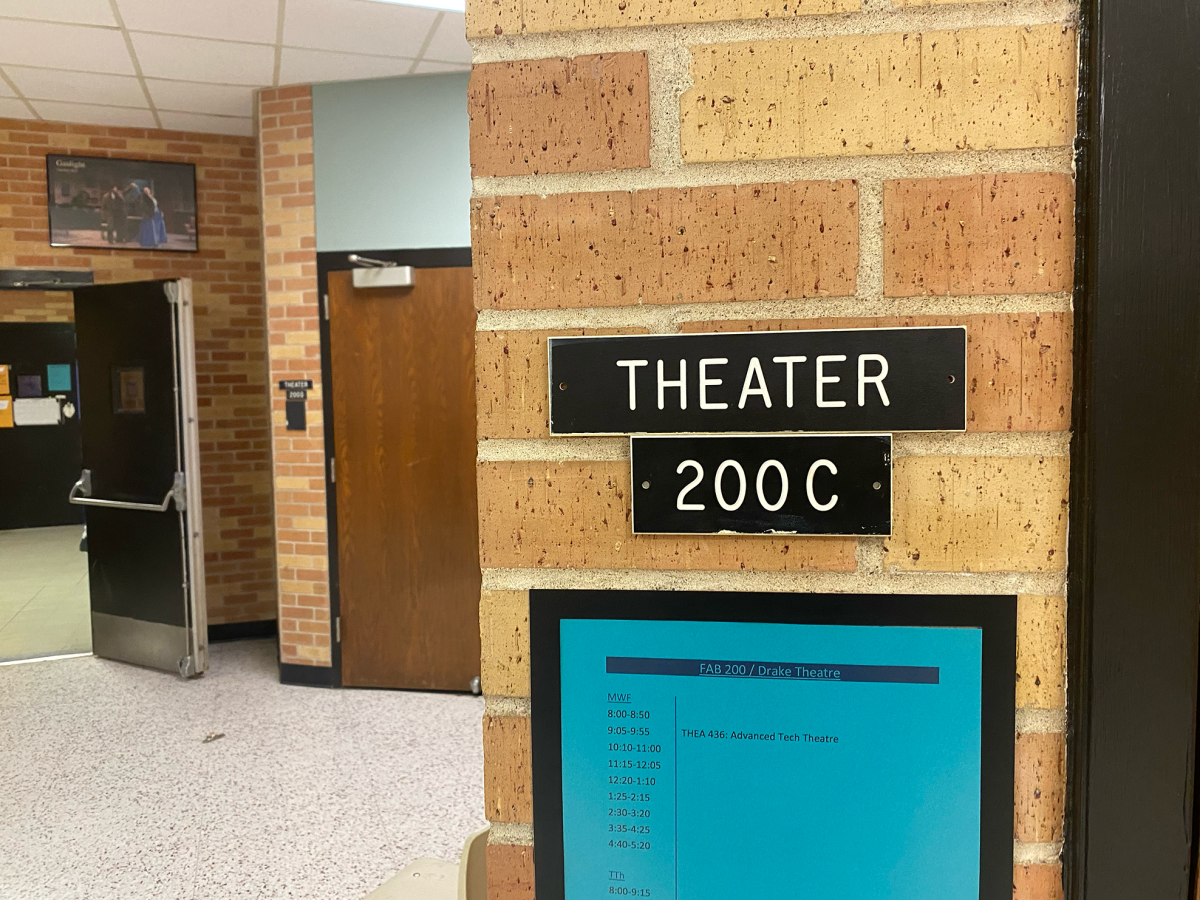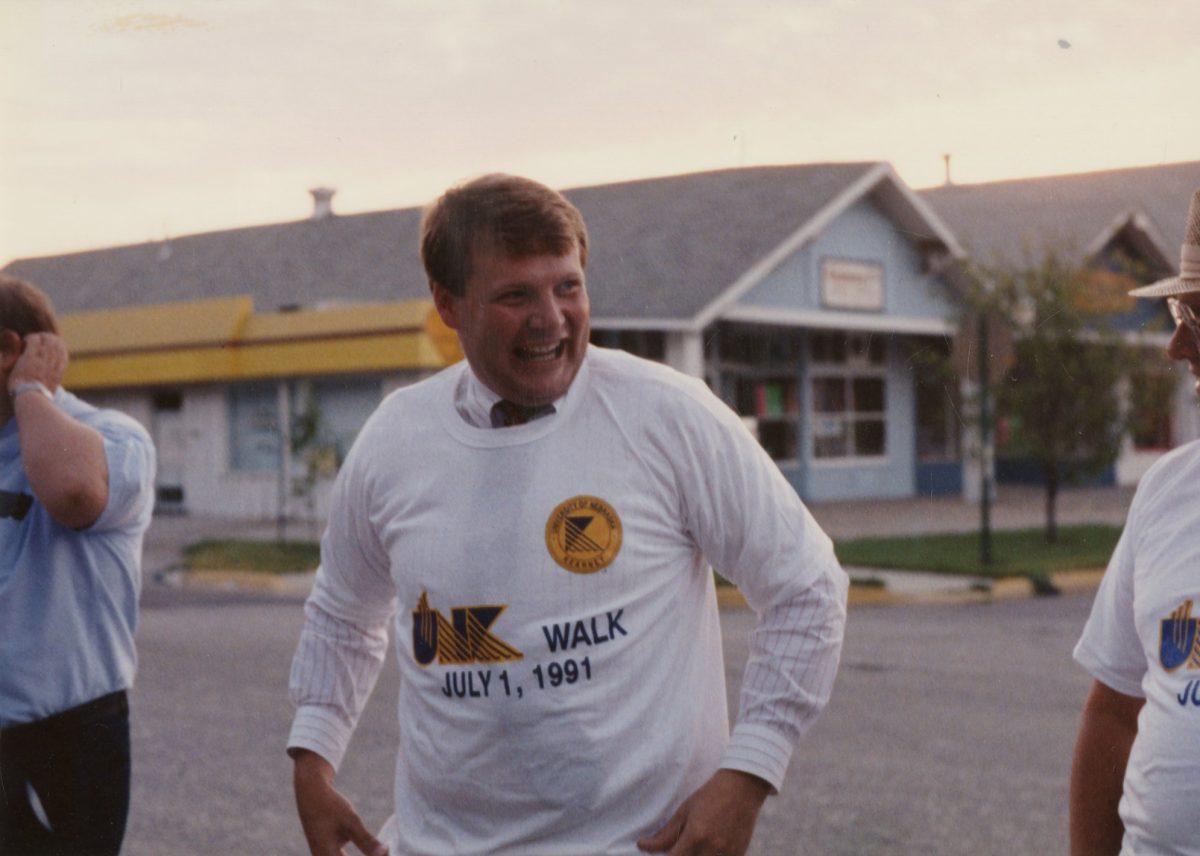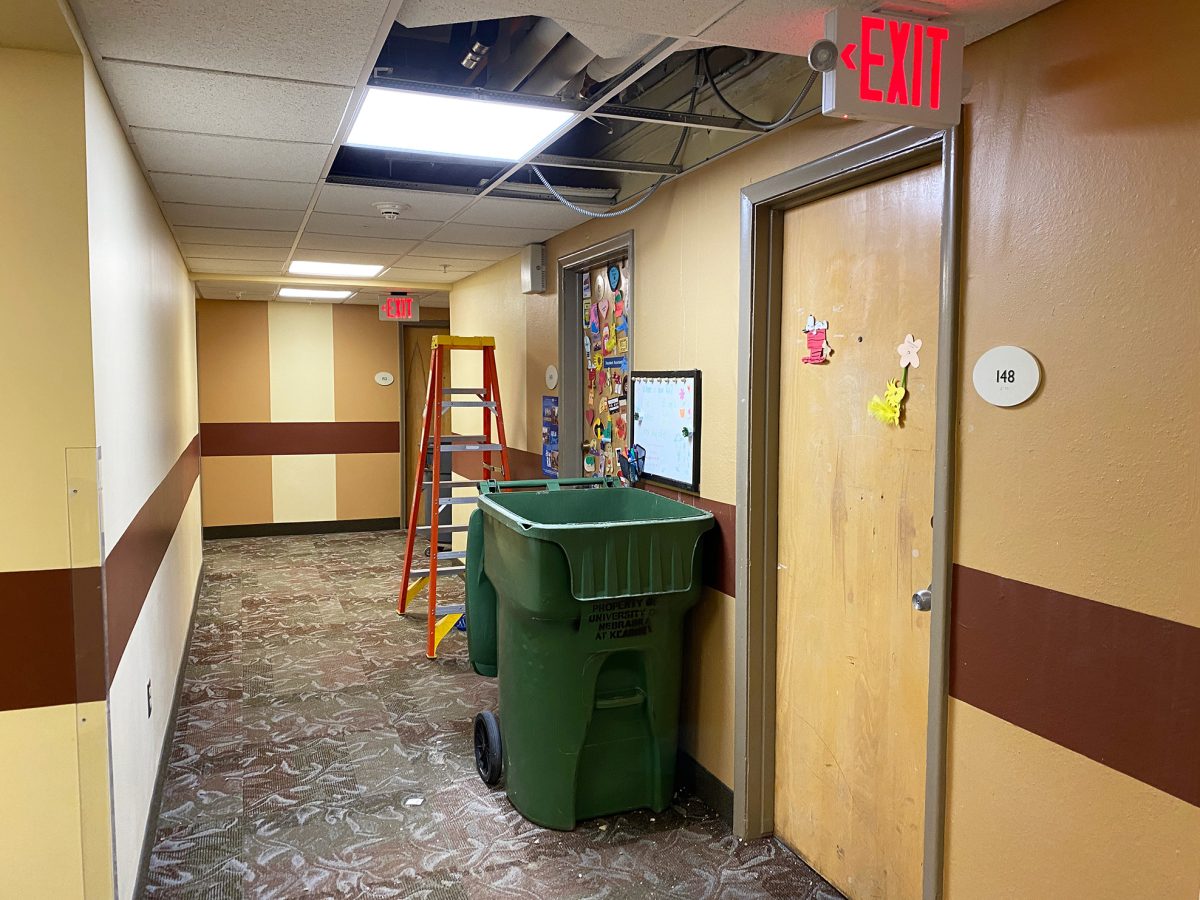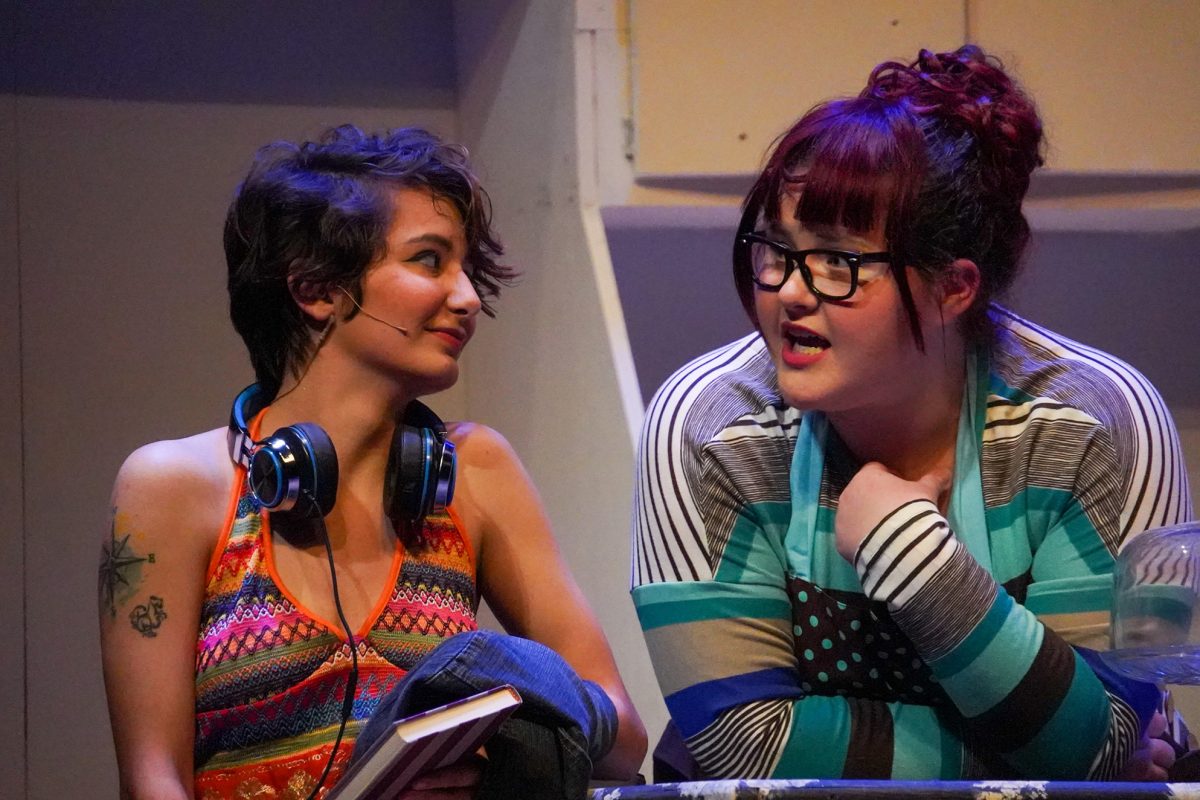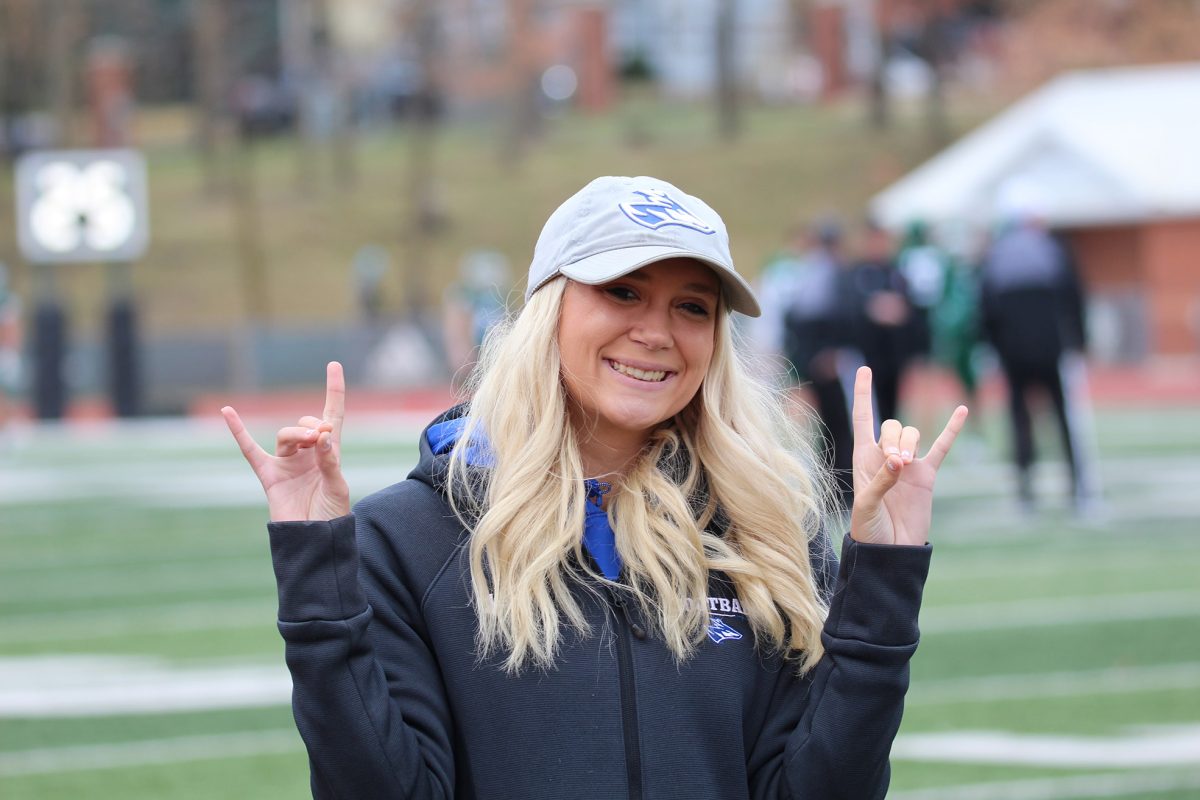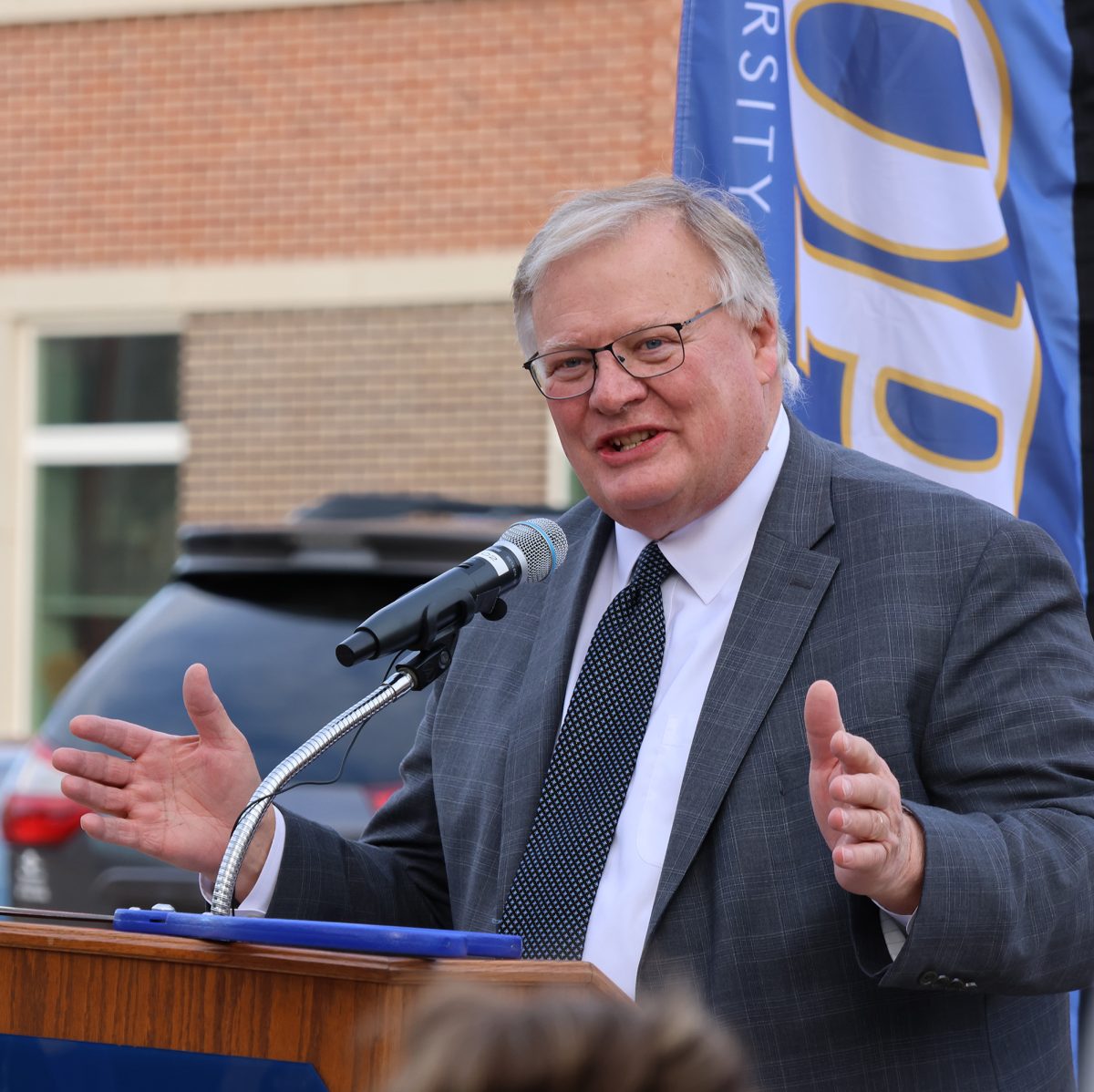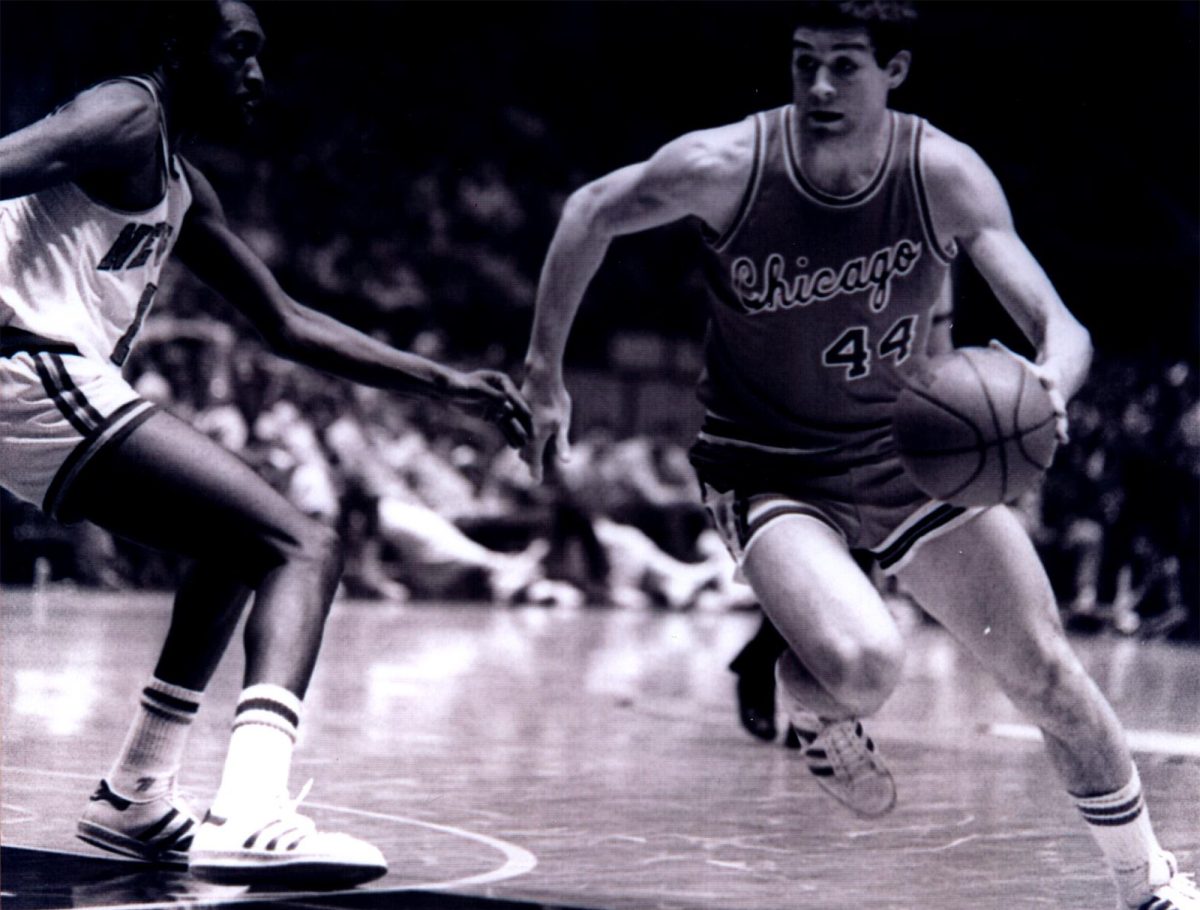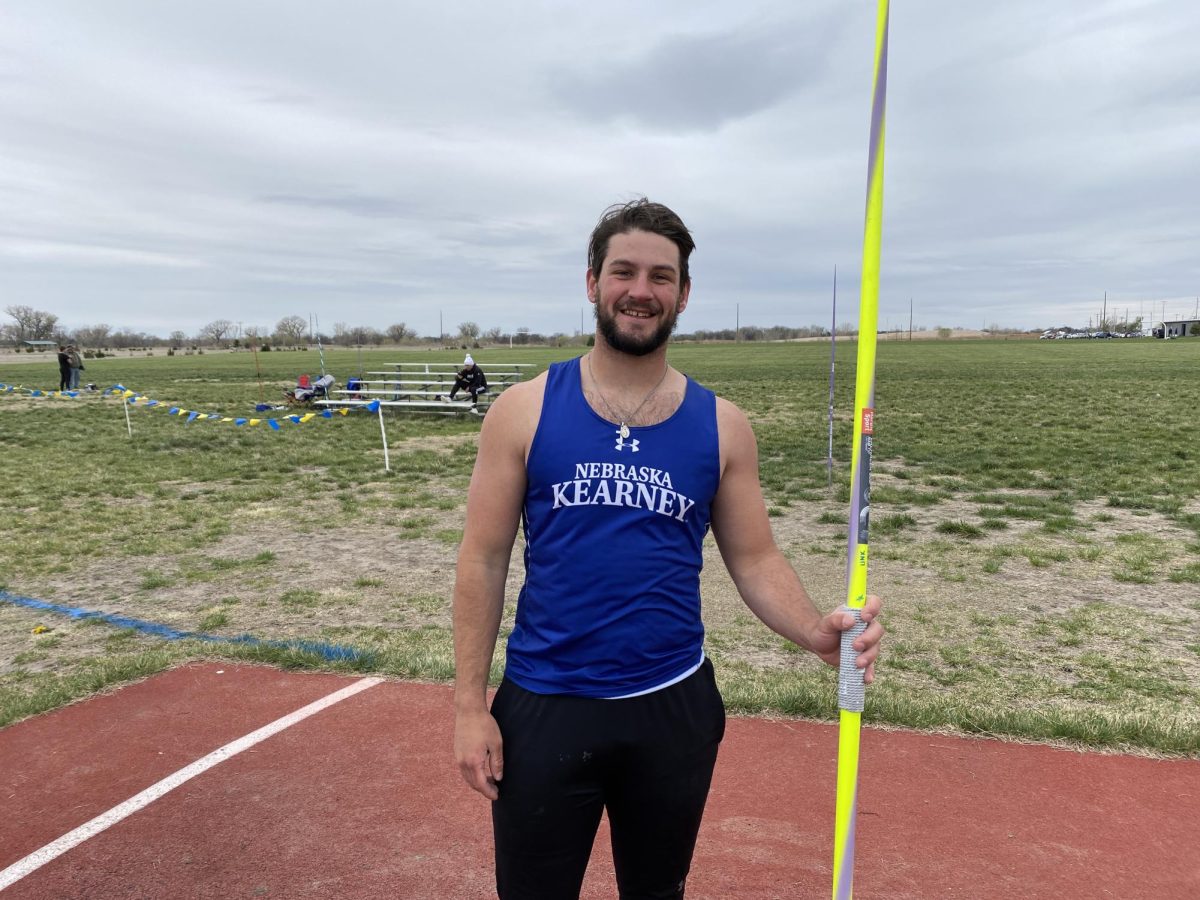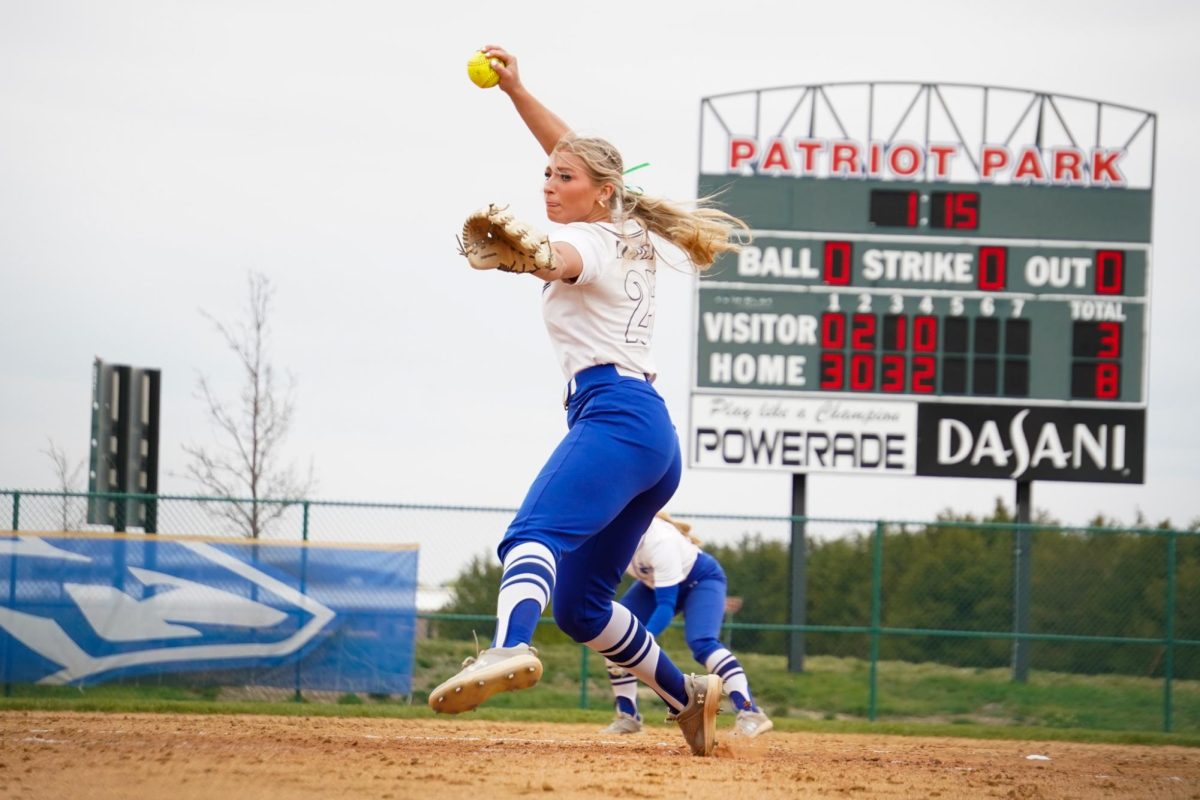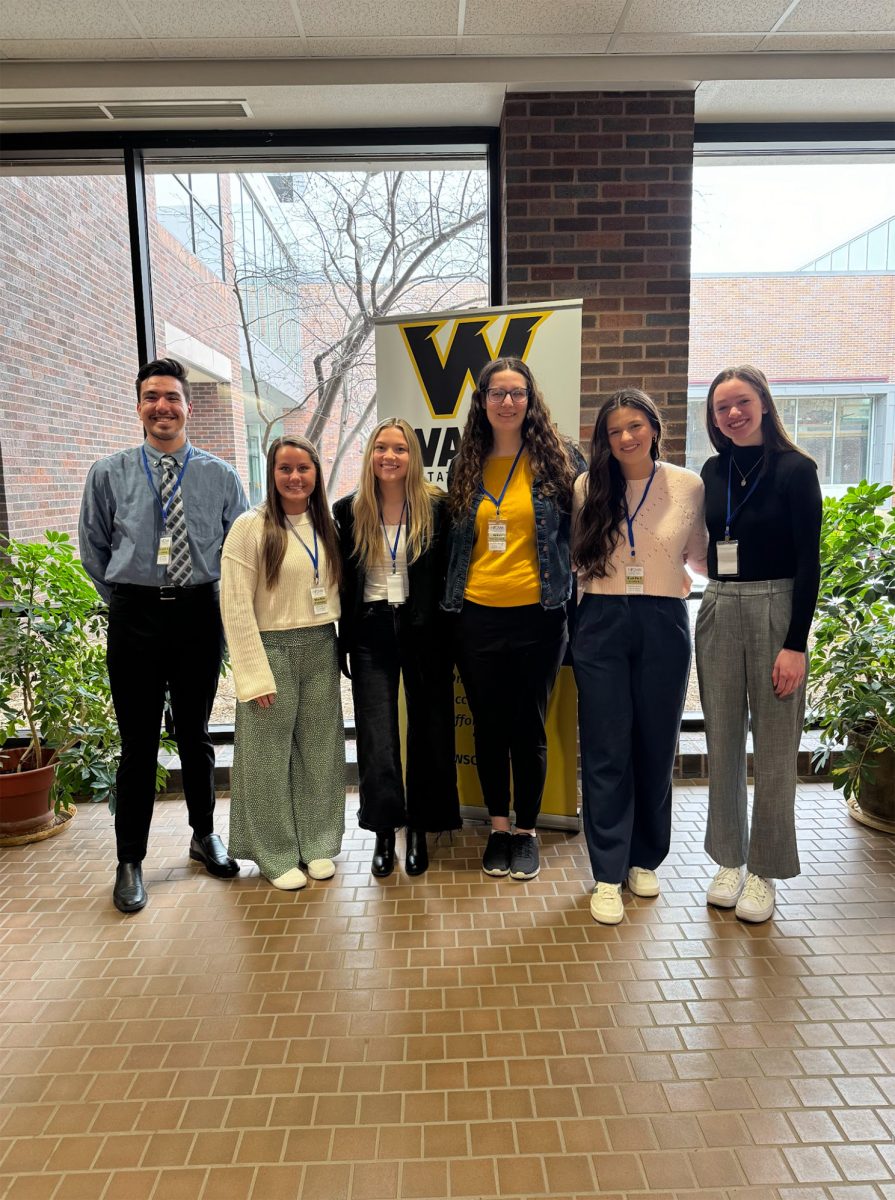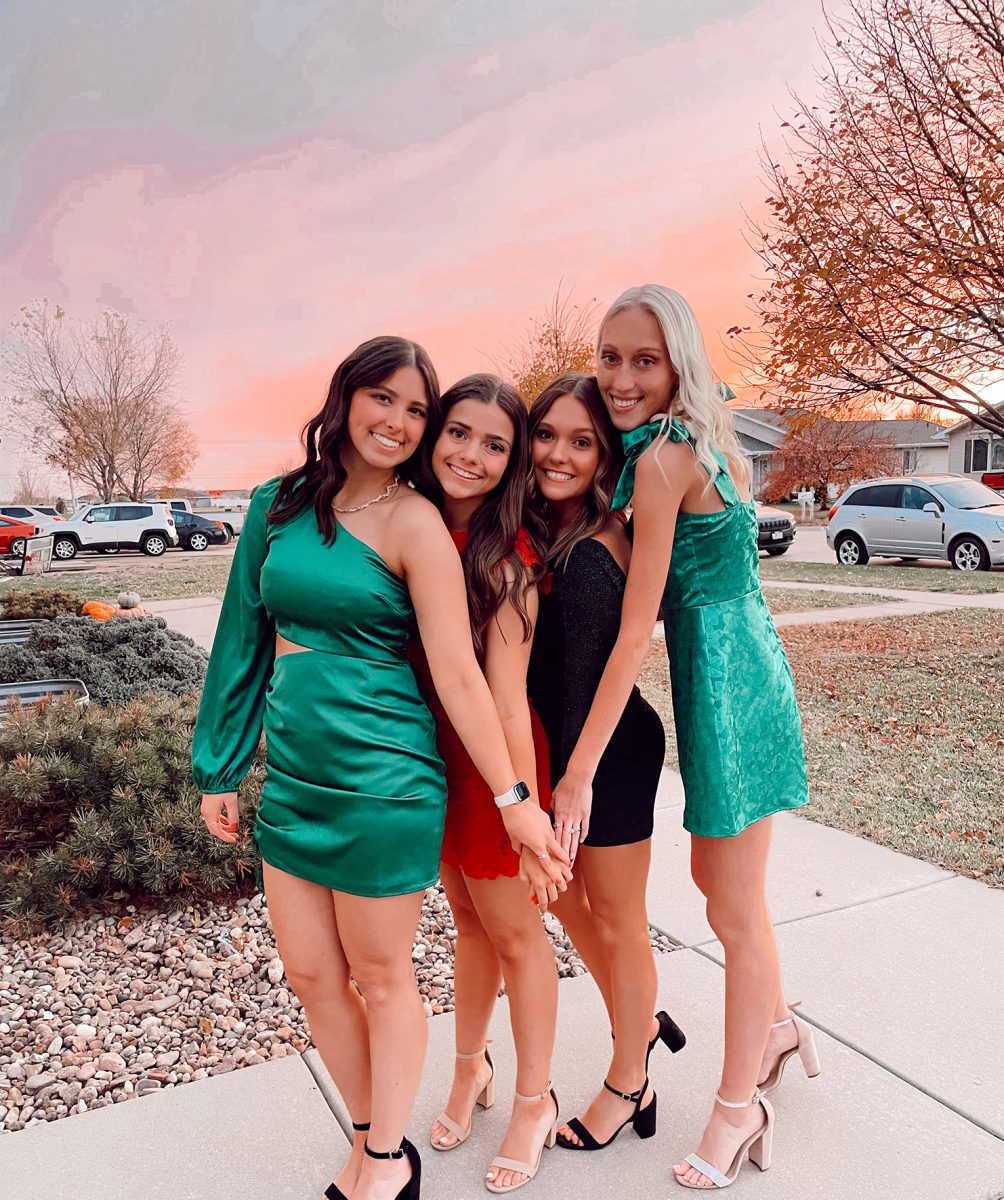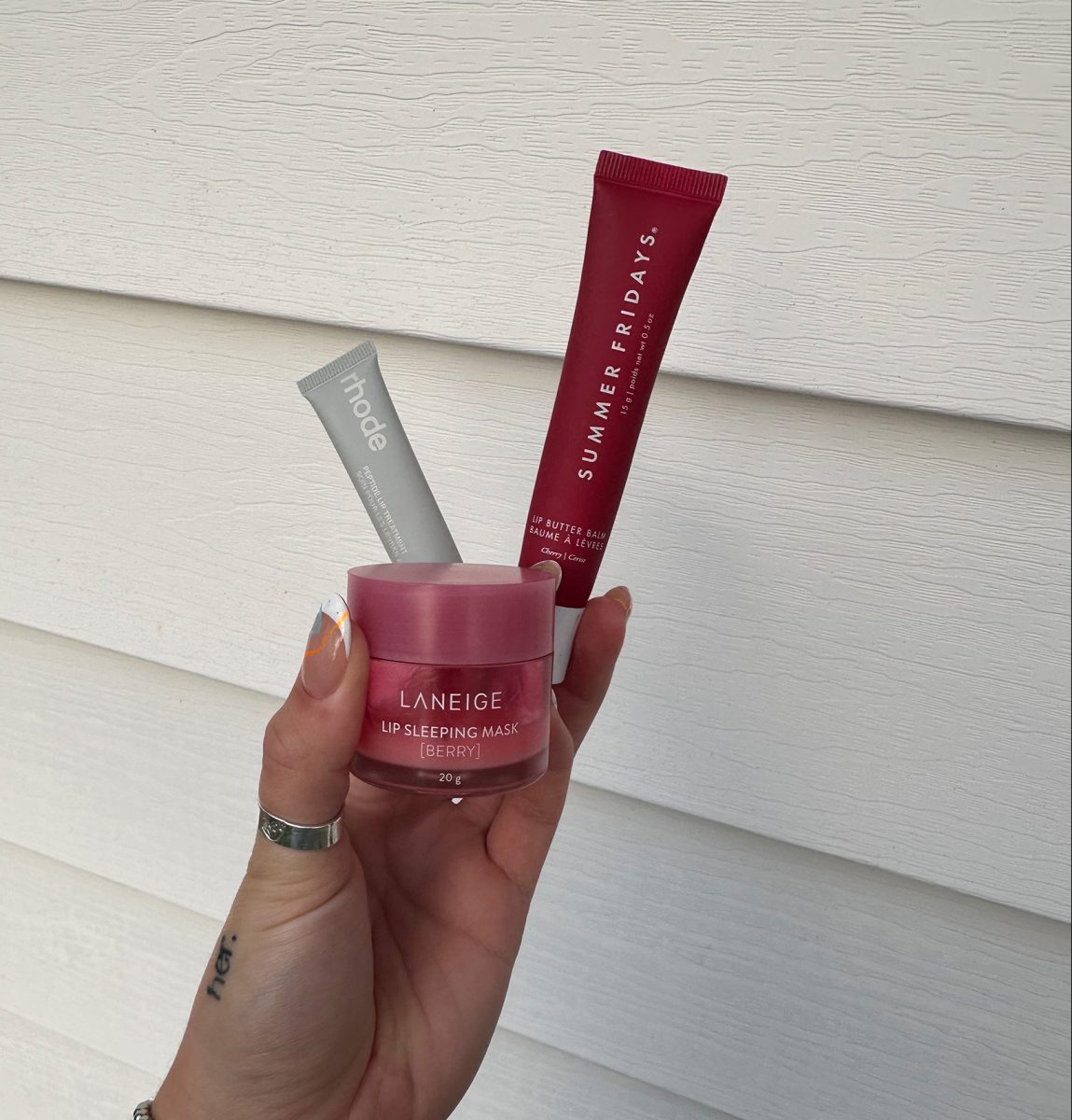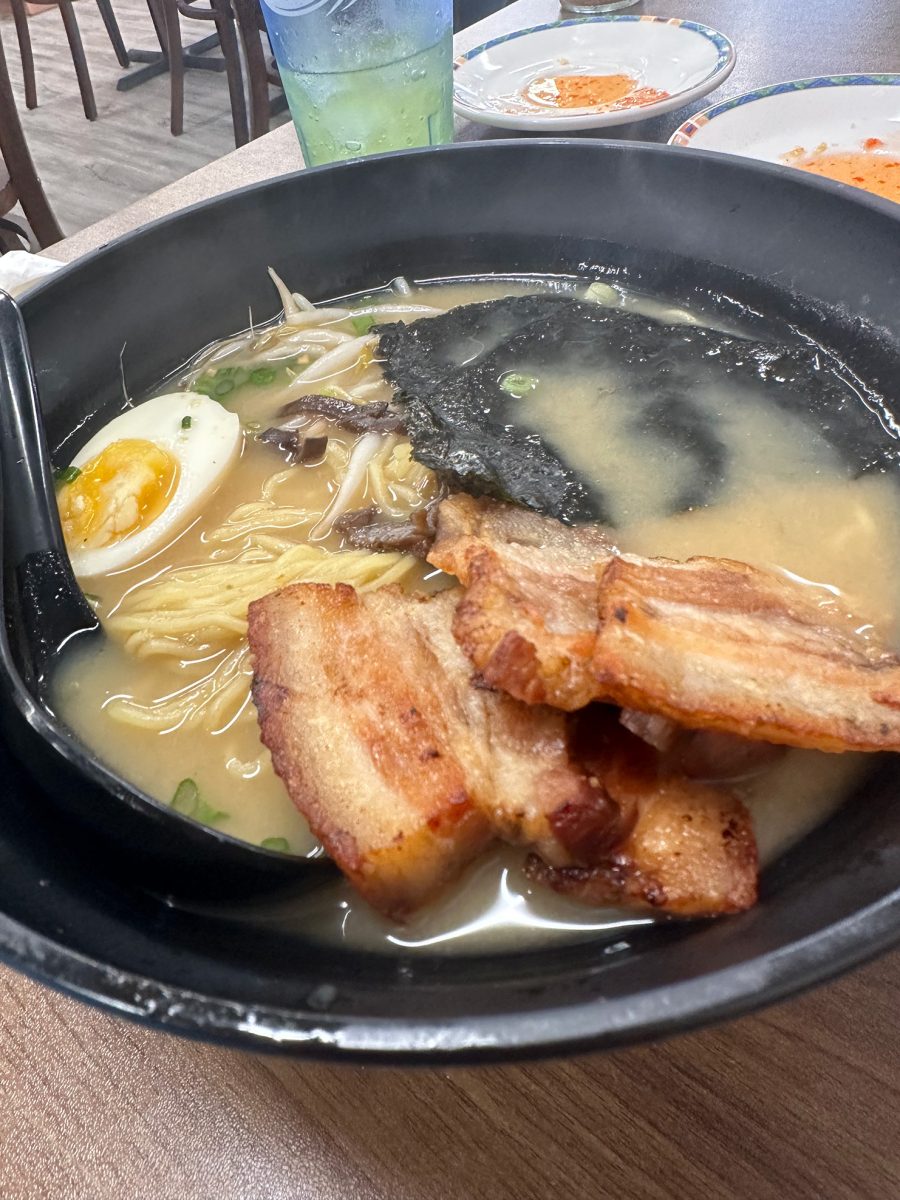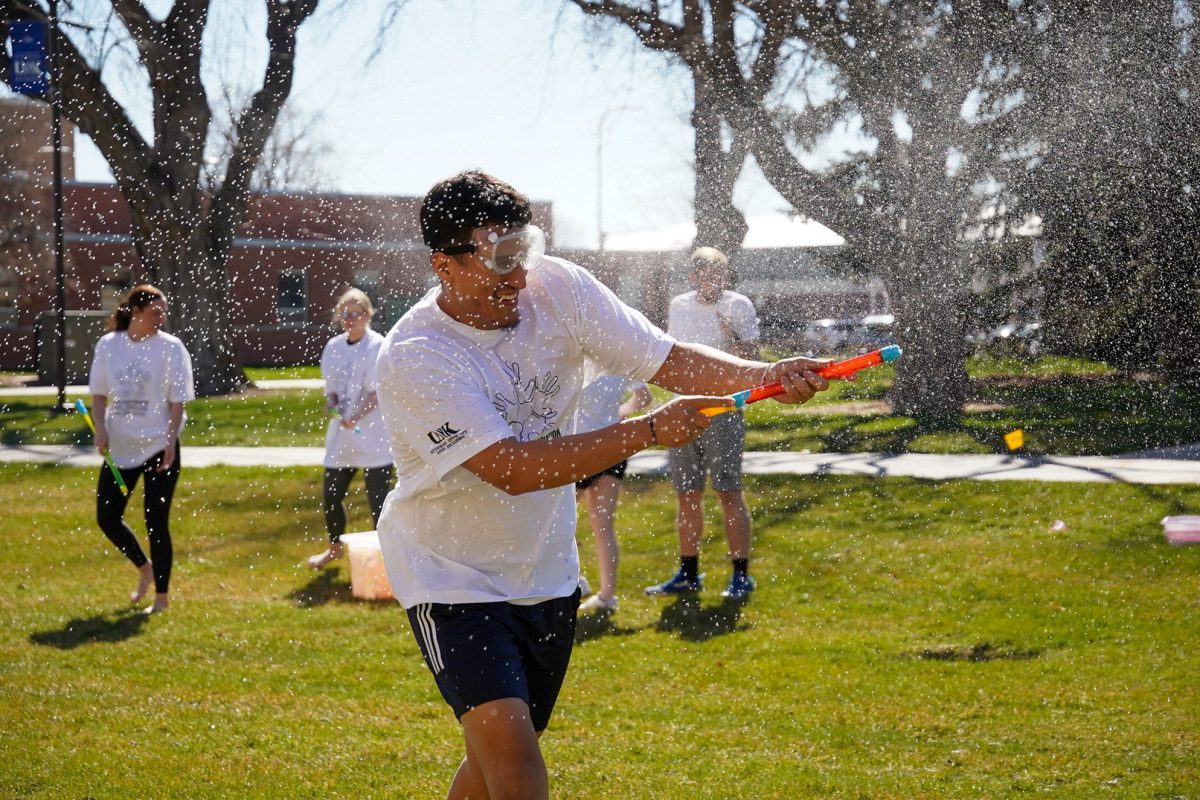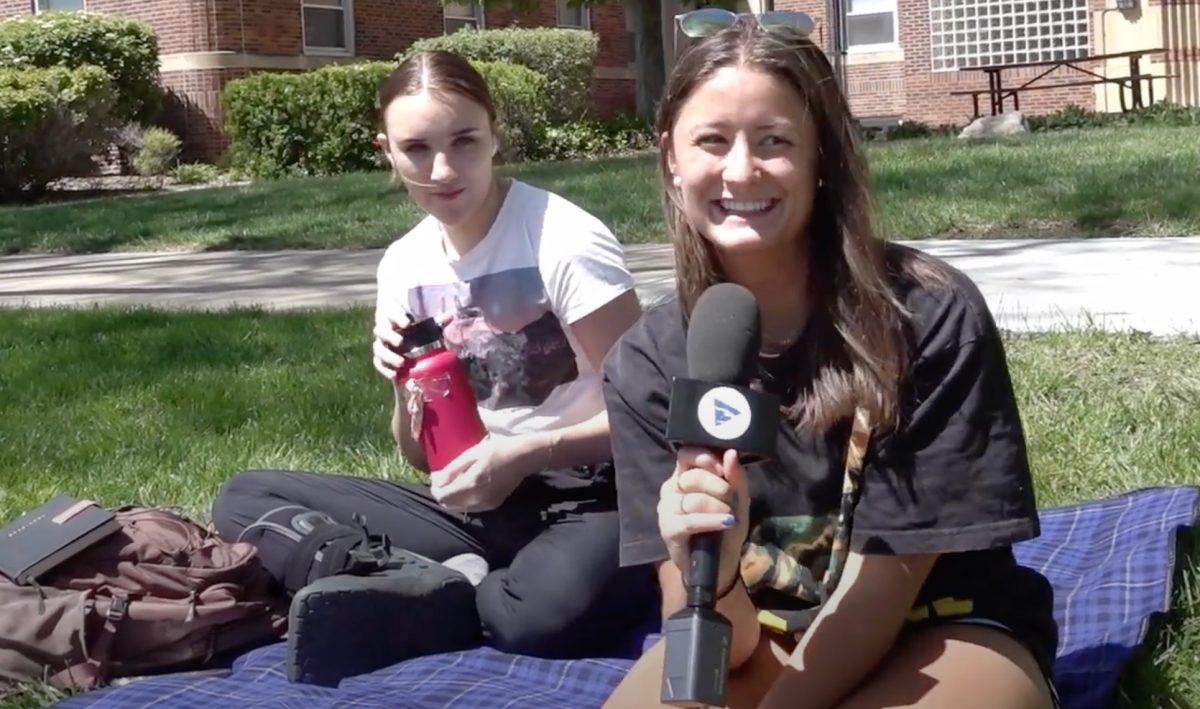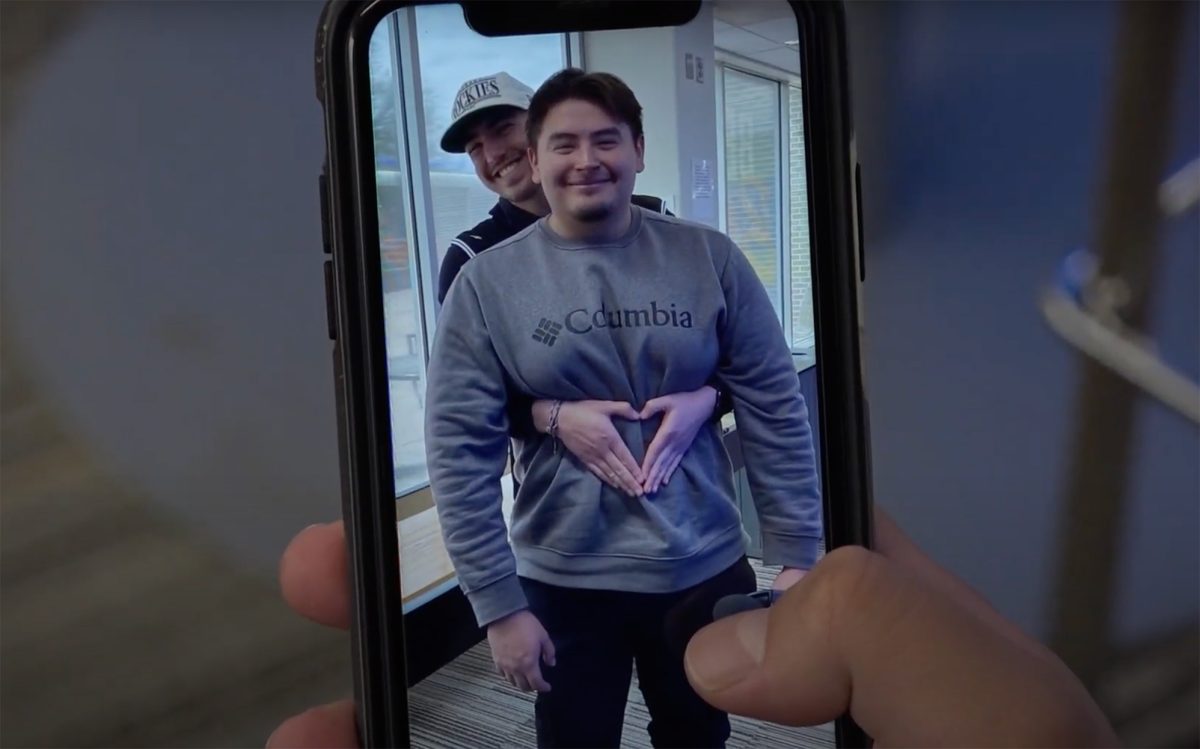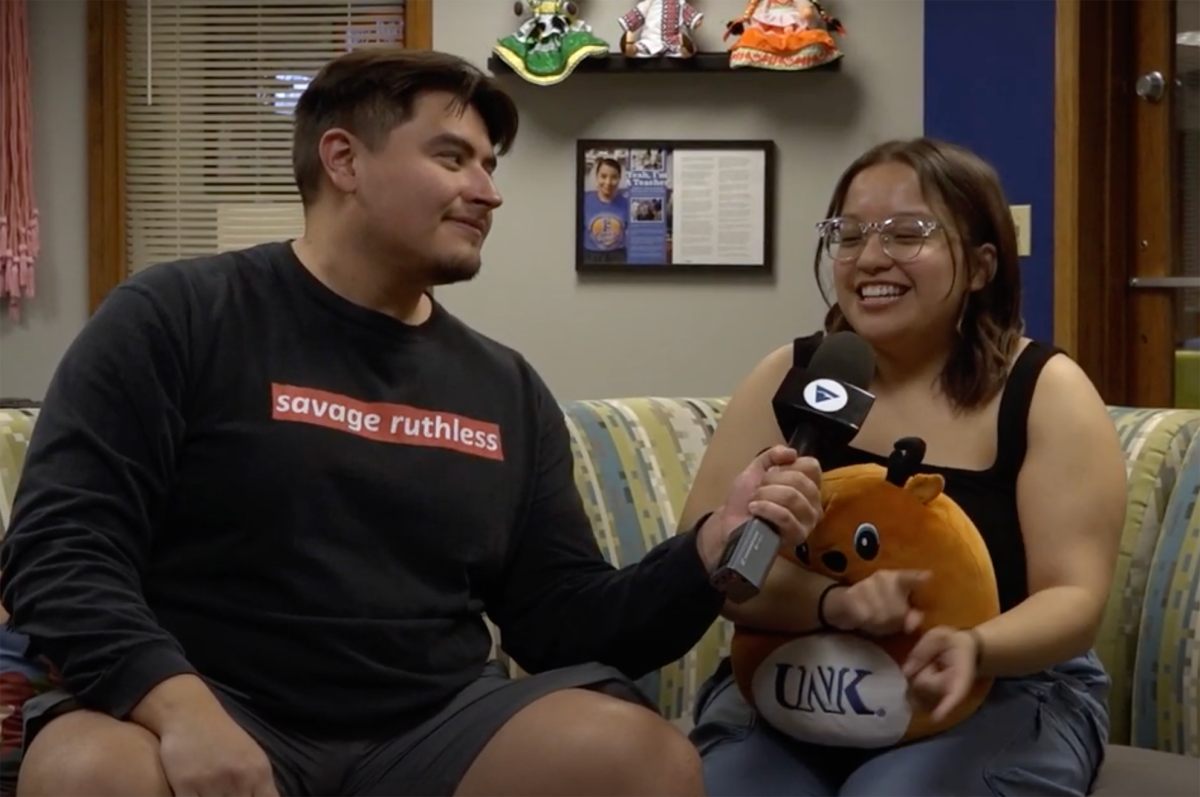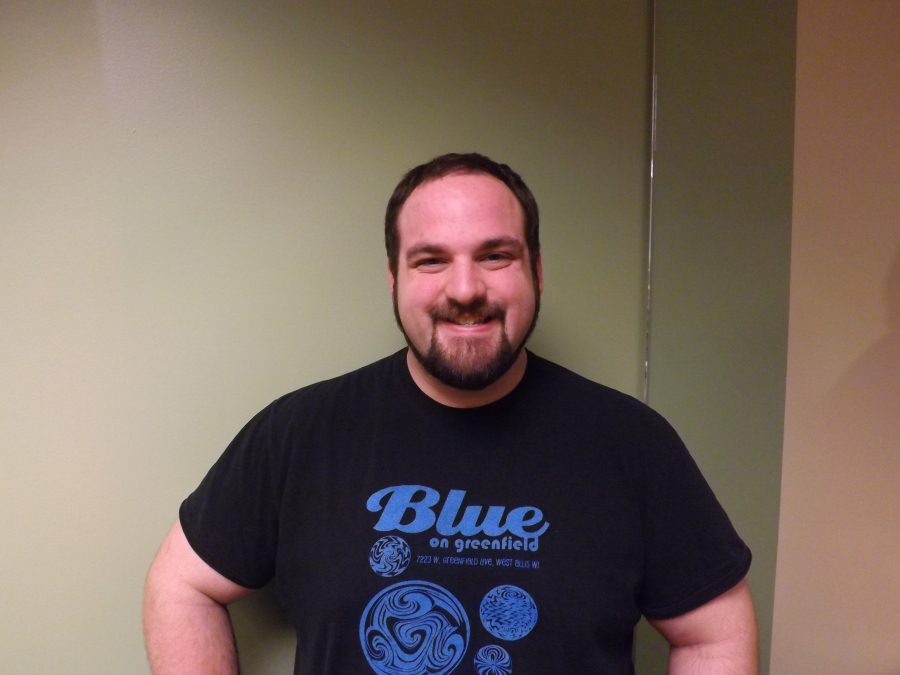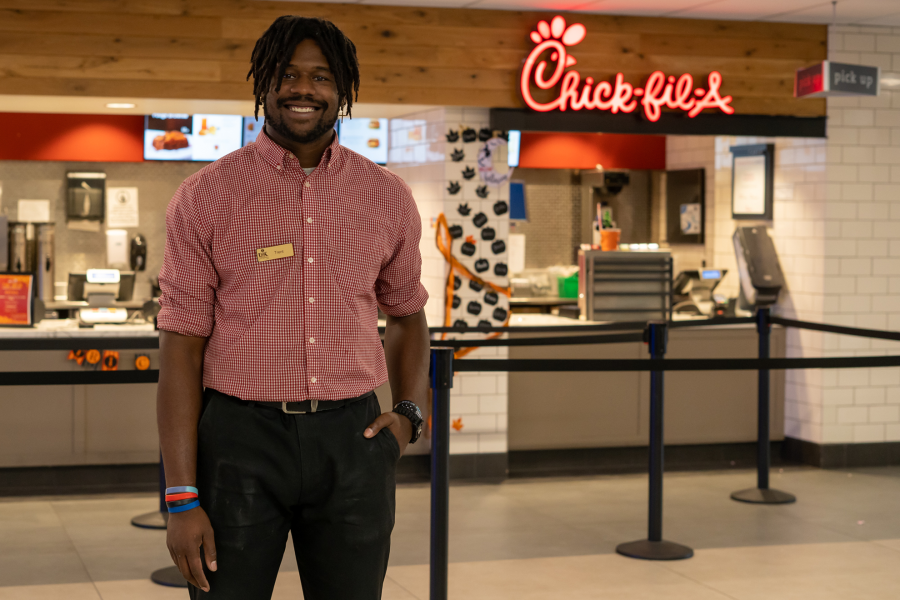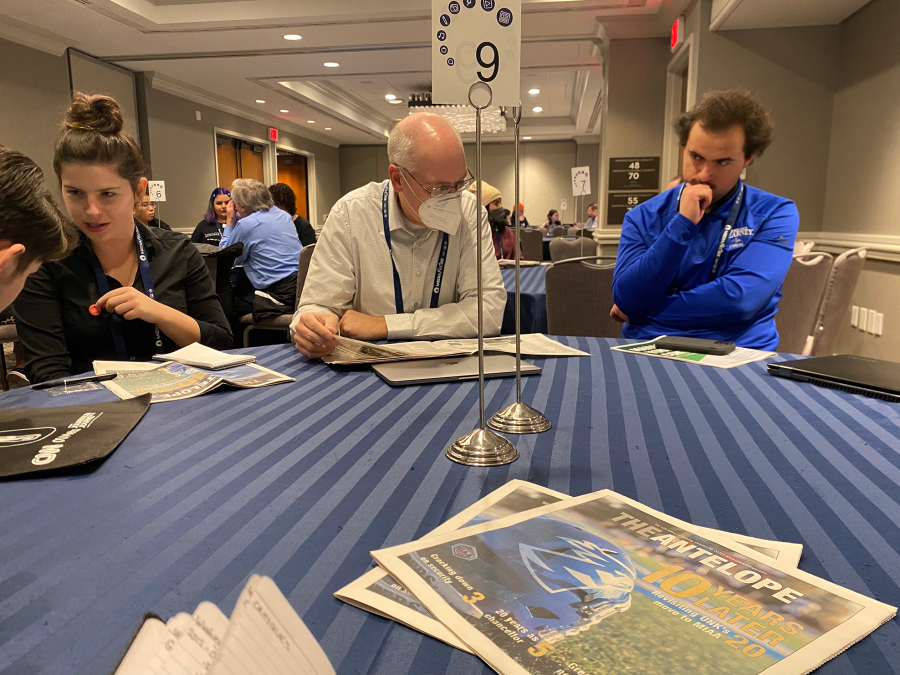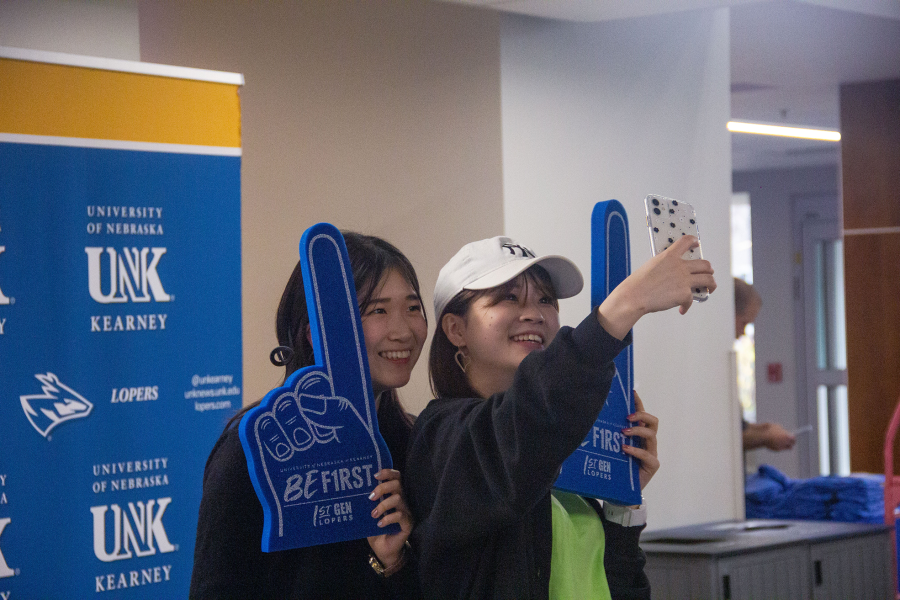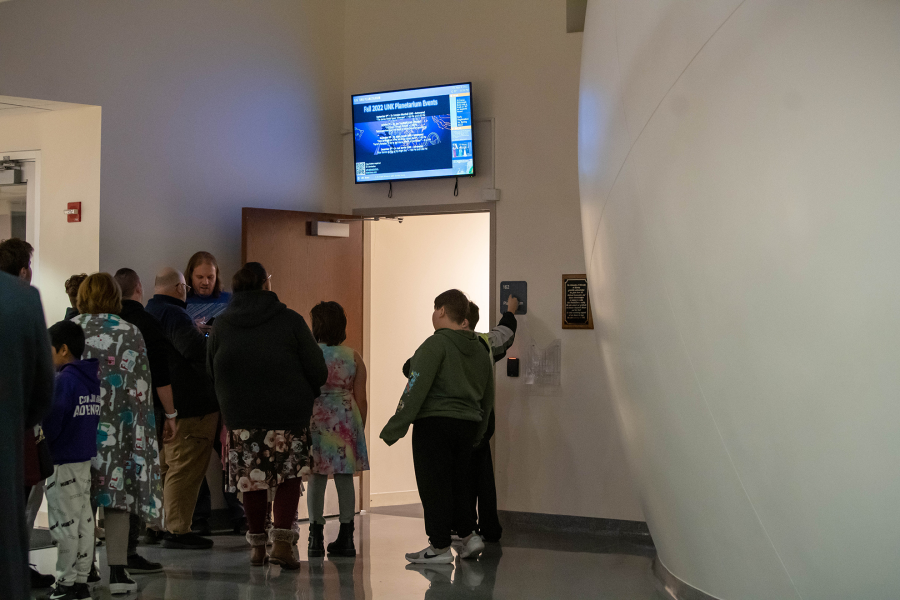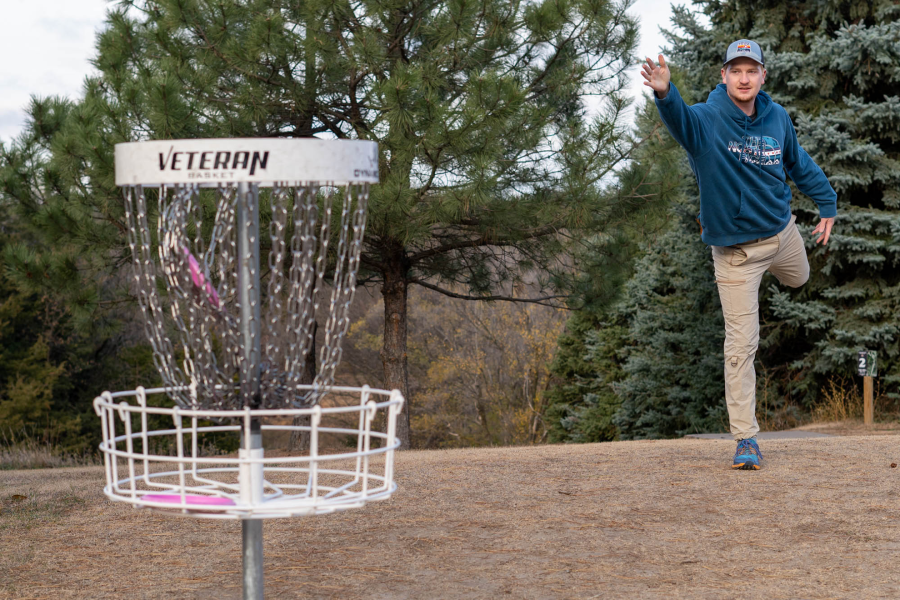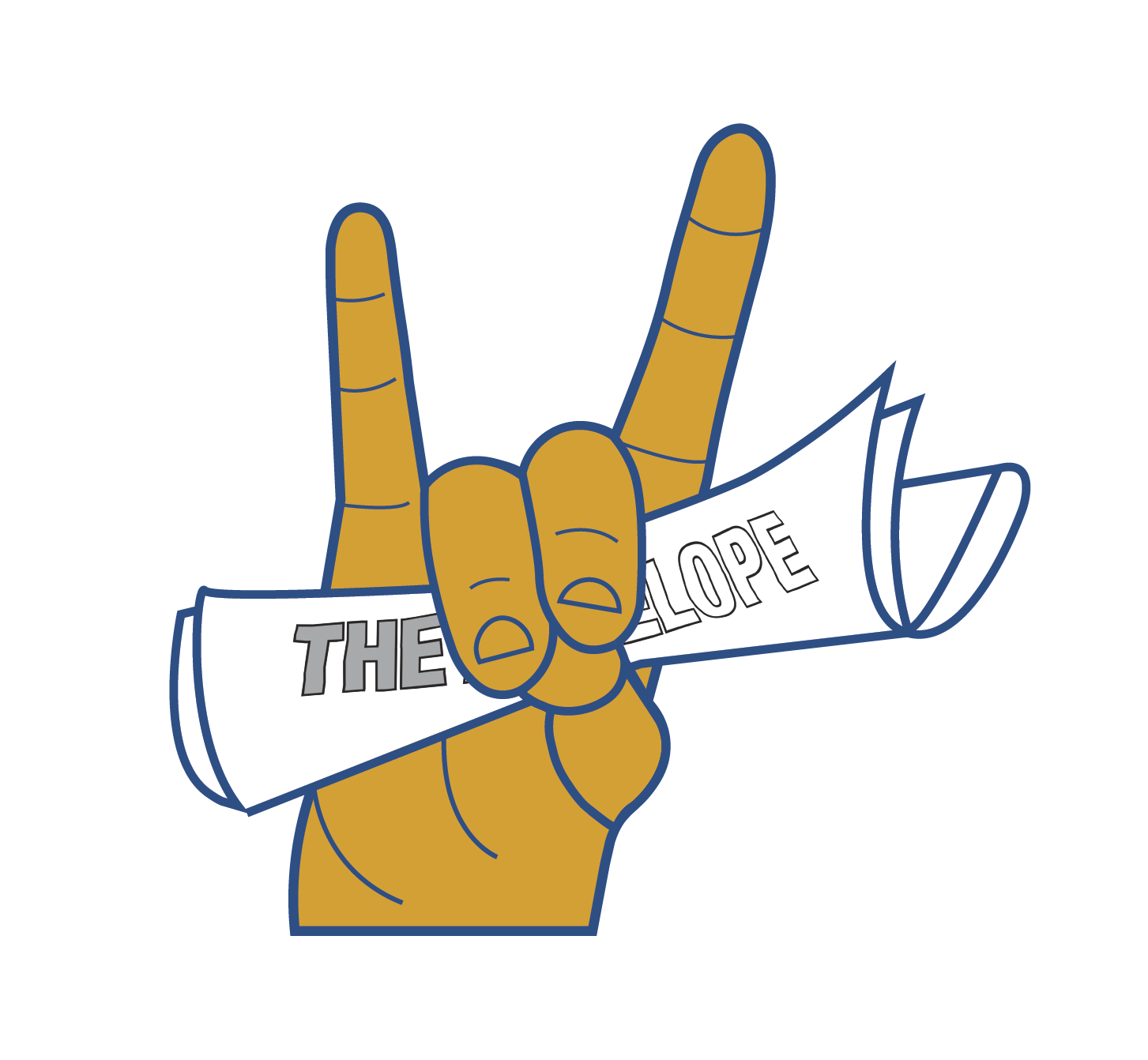Grad assistant gains experience working with struggling students who turn to Learning Commons
Shelby Larsen
Cameron Staudacher, a graduate student pursuing an educational specialist in school psychology degree from Milwaukee, Wisconsin, has been UNK’s Learning Commons graduate assistant since last August.
The Learning Commons has a very small staff and needs a graduate assistant to maintain services. According to Keri Pearson, Learning Commons assistant director, “We needed to start meeting the needs of students differently, so we had to seek out initiatives for that.”
Pearson said Staudacher has a lot of experience with assessment and supporting students because of his area of study. “He is a deliberate learner. He seeks to understand things from every possible level.”
Staudacher’s ability to ask great questions, his dedication to work and his ability to balance his different jobs in the Learning Commons all make him a great graduate assistant to work with, Pearson said.
Staudacher was originally interested in the job because he liked the idea of learning more about how students are supported in higher education settings.
As the Learning Commons graduate assistant, Staudacher has many duties, including observing tutors and success coaches, tracking data, addressing concerns from student employees and assisting and collaborating on projects in the Learning Commons.
Q. What is your favorite part of the job?
A. Working with our amazing student employees of course! There is nothing better than working with a bunch of people who genuinely want to help other students.
Q. What are the hardest and easiest parts of your job?
A. The hardest part is keeping a lot of little details organized. There is a considerable amount of small details that need to be attended to in the LC, keeping all of those straight required me to step up my organization game.
The easiest part is working with our student employees. We have a great group of people in the LC, and I have never dreaded interacting with them.
Q. Which part of the Learning Commons do you work closest with?
A. Probably subject tutors with writing tutors a close second. These services are used frequently, so they require significant support.
Q. Which part of the Learning Commons would you like to work closer with?
A. Probably success coaches, I’d like to explore more of how we can help students who are struggling with issues that are not strictly academic.
Q. How have you juggled work and class?
A. By doing my best to learn from my time-management mistakes of the past and seek help where I need it. Balancing a big load is tricky for everyone, but if you know your limits, practice self-care and use all the resources available, almost any workload will be manageable.
Q. Why did you choose psychology as your undergraduate degree?
A. I was fascinated by how people learn and grow. I wanted to explore more about how people make decisions and function in a variety of settings. I also enjoyed philosophy, and psychology has a lot of its roots in philosophy.
Q. Why did you choose to pursue a graduate degree as an educational specialist in school psychology?
A. I learned around my junior year of undergrad that I enjoy working with kids. Developmental psychology was already an interest of mine, along with the science of learning, so school psychology offered me a chance to study things I enjoyed and apply what I learned to help children grow, develop and learn.
Q. What are your post-grad plans?
A. I will probably pursue employment with a school district directly after graduating in May 2019. I am also exploring continuing my education and pursuing a PhD. There are a lot of different avenues to take, and there are a lot of opportunities for growth and diversification in my field.
Q. How will working in the Learning Commons benefit you in your post-grad plans?
A. I gained a ton of experience with struggling learners, which is the bulk of school psychology. There is no better place than the LC to learn what makes students struggle, and I have had a ton of leeway to investigate issues students are having and assist our student employees in finding solutions to those issues.
Q. Where do you see yourself in 10 years?
A. Hopefully employed as a successful school psychologist, maybe doing some research. By that time, I hope to have oriented myself to my field a little bit more than I can as a student, but honestly, I’m uncertain where I’ll end up in 10 years. There are a lot of enticing options to choose from.

